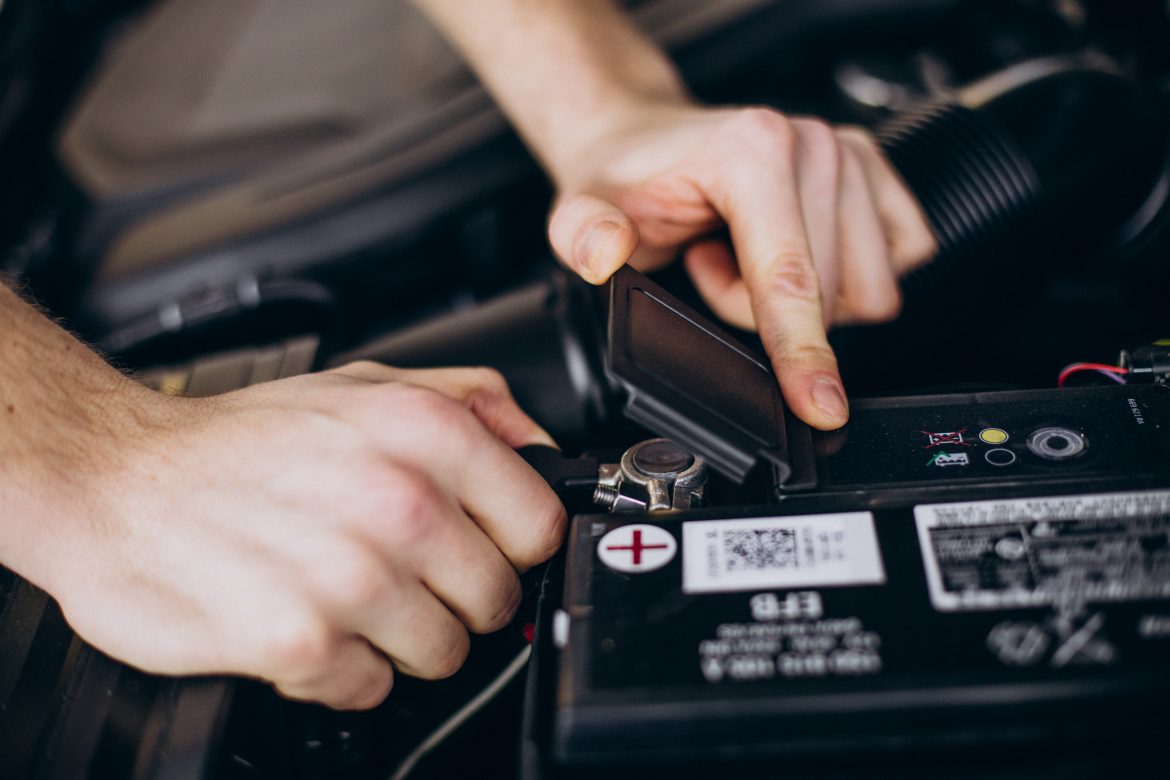
🚗 Introduction to Automotive Batteries: What You Need to Know
| May 25, 2025Car batteries are the silent heroes of your vehicle. From starting the engine to powering lights, music systems, and more, your car wouldn’t run without one. Still, most drivers only think about their battery when the car fails to start.
This guide will help you understand the basics of automotive batteries—what they are, how they work, when to replace them, and how to make them last longer.
🔋 What Is an Automotive Battery?
An automotive battery is a rechargeable device that stores and supplies electricity to start your car and power its electrical systems. When you turn the ignition key or push the start button, the battery kicks into action.
It also helps run lights, wipers, music systems, and air conditioning—especially when the engine is off. Electric and hybrid vehicles use advanced battery systems to run both the motor and electronics.
⚙️ Different Types of Car Batteries
There are several battery types. Knowing them helps you pick the right one.
🔹 Lead-Acid Batteries
- Flooded (Wet Cell): Affordable but needs regular maintenance.
- AGM (Absorbent Glass Mat): Sealed, durable, and maintenance-free.
- Gel Cell: Performs well in hot weather and is spill-proof.
🔹 Lithium-Ion Batteries
- Lightweight, charge quickly, and last longer.
- Used in electric vehicles (EVs).
- Higher upfront cost.
| Battery Type | Maintenance | Lifespan | Best For |
| Flooded | Yes | 3–5 years | Older or budget cars |
| AGM | No | 4–6 years | Modern fuel-based cars |
| Lithium-Ion | No | 8–10 years | Electric vehicles |
✅ How to Choose the Right Battery
When buying a car battery, consider:
- Your vehicle model
- Weather conditions (cold areas need higher CCA ratings)
- Battery size and terminal location
- Reserve capacity (how long it runs when the alternator fails)
Always follow your car manual or get advice from a trusted mechanic.
⚠️ Warning Signs You Need a New Battery
Watch out for these signs:
- Slow engine start
- Flickering or dim headlights
- Dashboard battery warning light
- Swollen or leaking battery case
If your battery is older than three years, get it tested—even if it seems fine.
🧰 Easy Tips to Maintain Your Battery
A few simple habits can extend your battery life:
- Check for corrosion on terminals (clean using baking soda and water)
- Don’t leave lights or music on after turning off the engine
- Drive often to keep the battery charged
- Park in shaded areas during extreme heat
- Test voltage with a digital voltmeter monthly
These steps can save you from unexpected battery failure.
🚙 How a Weak Battery Affects Your Car
A bad battery can cause more problems than you think:
- Trouble starting the engine
- Poor performance of lights and wipers
- Glitches in car electronics
- Extra load on the alternator, reducing fuel efficiency
It’s more than just convenience—it affects safety and reliability.
🌍 Battery Recycling: Do It Right
Batteries contain harmful chemicals like lead and acid. Don’t throw them in the trash.
Here’s what to do:
- Return them to auto part shops or garages with recycling programs
- Find certified battery recyclers near you
- Use programs listed on Battery Council International
Proper disposal helps protect the environment and saves reusable materials.
🔌 Looking Ahead: The Future of Car Batteries
The auto world is moving towards electricity. EVs now use lithium-ion batteries, and newer tech like solid-state batteries is being developed. These batteries charge faster, last longer, and are safer.
Keeping an eye on these innovations helps when planning your next car upgrade.
🏁 Final Thoughts
Your car battery might seem small, but it’s a big deal. A well-maintained battery ensures reliable starts, better performance, and a smoother drive.
👉 Want more tips to keep your car in top shape? Visit our Vehicle and Tire Care Tips for expert advice and maintenance ideas.



